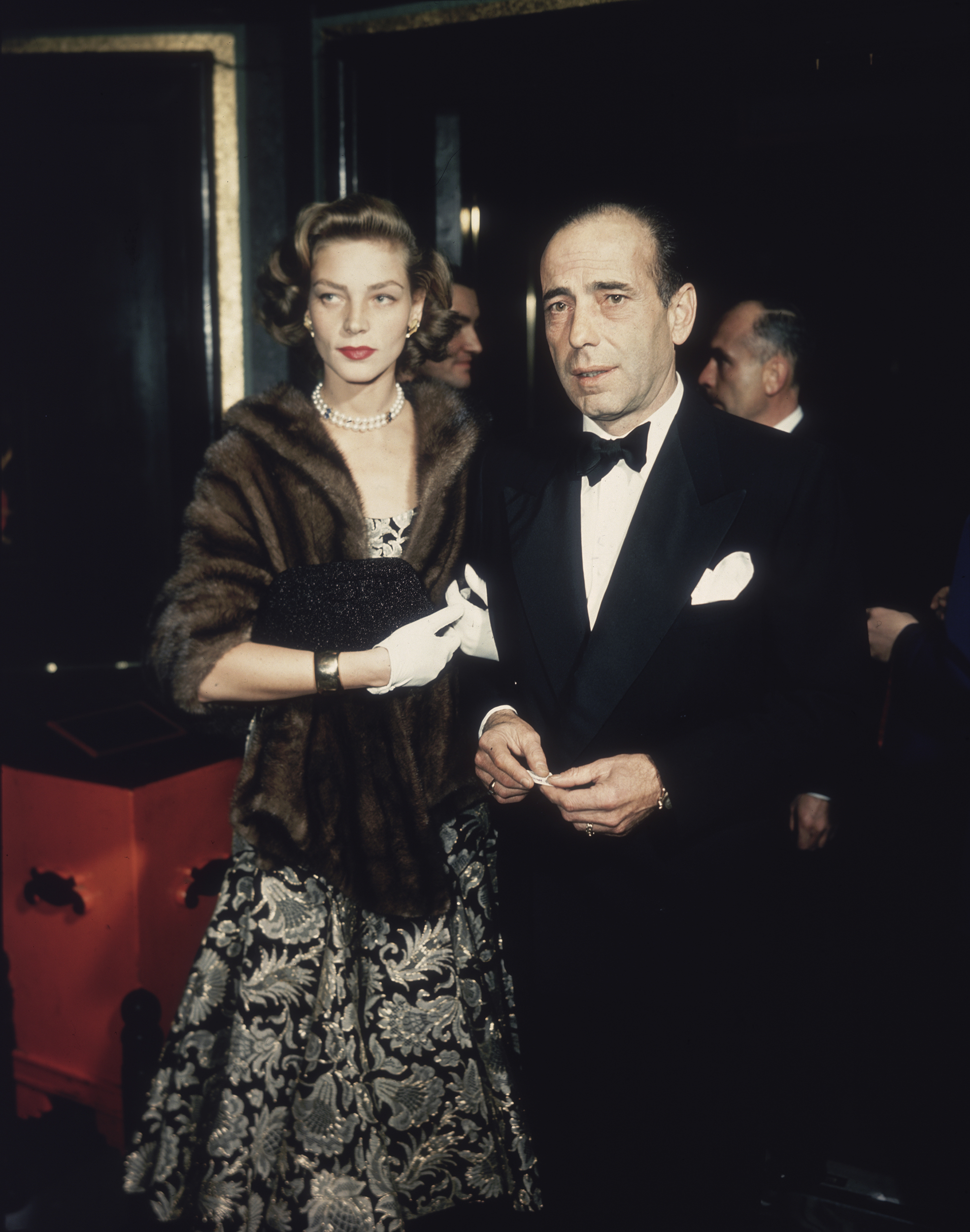Helmed as the greatest male actor of American cinema and Hollywood’s golden age, the late Humphrey Bogart’s life story is being explored in a new documentary by Universal Pictures Content Group, backed by the Bogart estate.
Titled Bogart: Life Comes in Flashes, filmmaker Kathryn Ferguson and Bogie’s own son Stephen Humphrey Bogart come together to bring a new perspective and recounting of his life through his relationships with the five important women in his life—his mother and past four wives. “On screen, he was most famous as rugged individualistic, and a loner, but off-screen, he spent the majority of his adult life married,” explains Ferguson to V, as seen inside the pages of our V150 issue. “Bogart’s private life was extraordinarily eventful, arguably more so than many of his cinematic characters.”
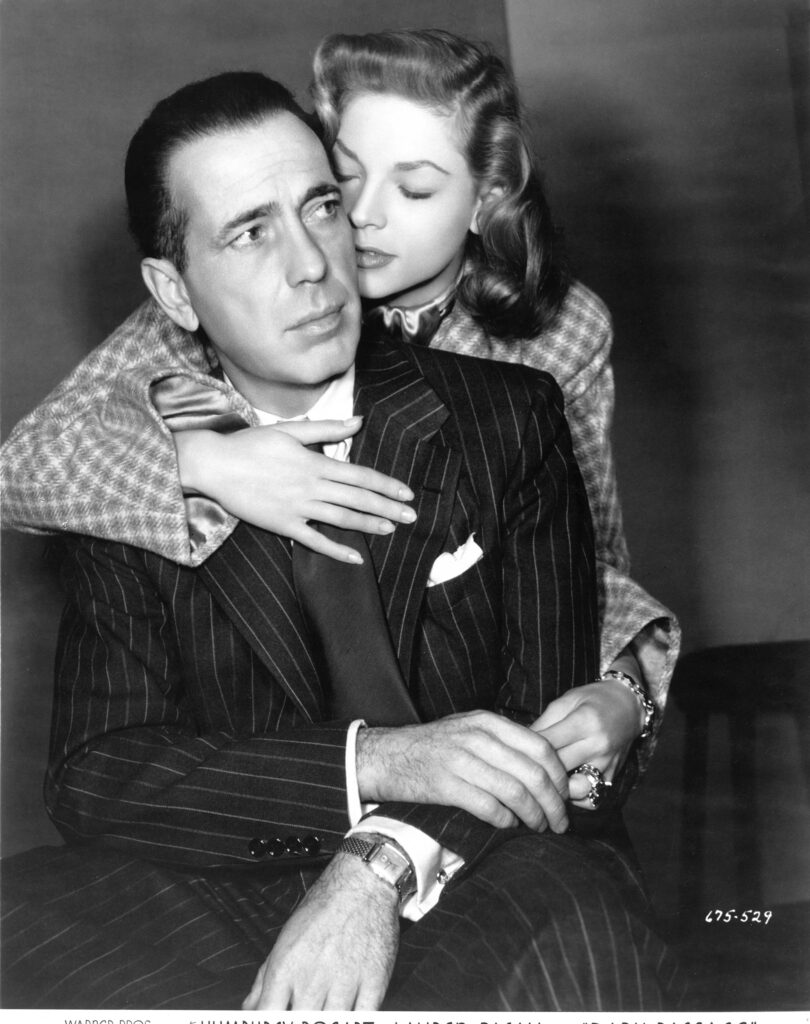
To learn more about Bogart: Life Comes in Flashes, V caught up with Kathryn Ferguson and Stephen Humphrey Bogart to discuss how the film came to be.
V Magazine: There have been a few smaller documentaries on Bogart in the past but this one just so happens to be the first documentary officially endorsed by his estate. What pressures (if any) did that endorsement give you to get it the doc right?
Kathryn Ferguson: When Universal Pictures Content Group approached me about directing this project, my primary stipulation was to spend time developing the idea and crafting the story I wanted to tell as a filmmaker before commencing production. This was a crucial part of the process as the treatment that I created with co-writer and producer Eleanor Emptage is the film we went on to make. This meant there were very few surprises on either side and the relationship with the estate was extremely straightforward and harmonious.
V: How helpful and resourceful was the Bogart estate throughout the completion of the documentary? What were some of the most surprising discoveries throughout the process?
KF: The Estate is helmed by Bogart’s two children, from his marriage to Lauren Bacall. They helped with providing rare home movie footage, and family photographs that really brought the film a unique insight into the lives of one of Hollywood’s most iconic couples.
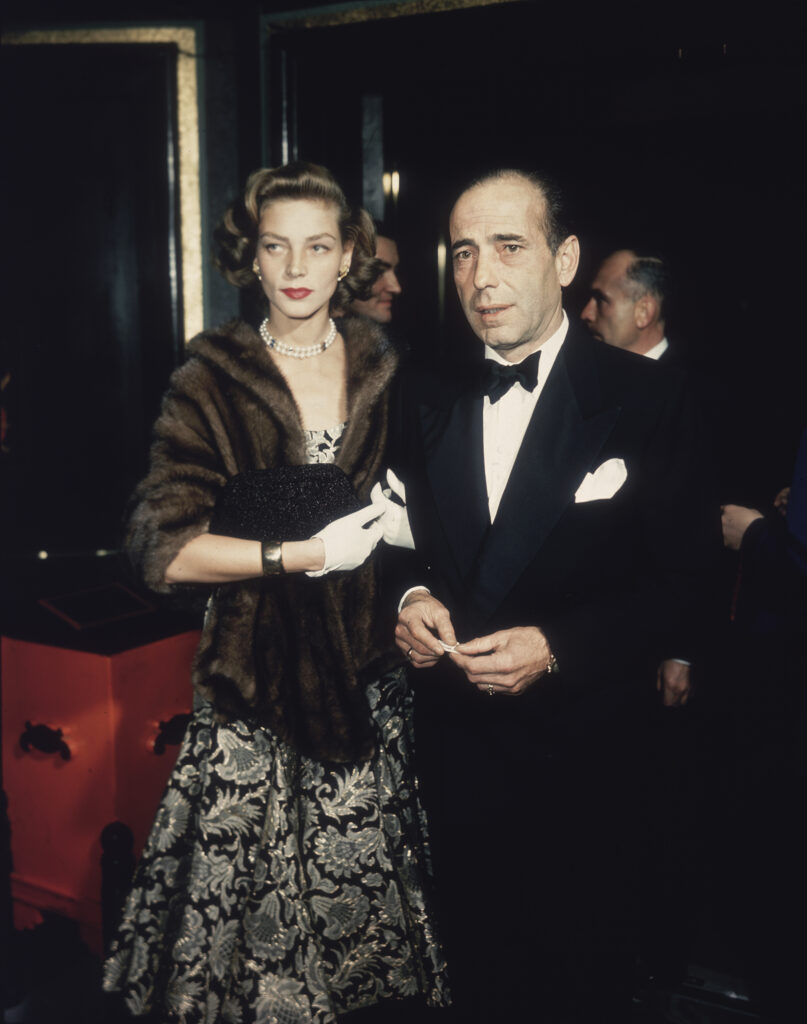
V: What did the starting point of the documentary look like for you? What conversations were had with the Bogart estate to get it all going?
KF: The conversation between Bogart and Universal had been happening long before I was asked to come on board as the director, the film & partnership was already agreed, I was then brought in to bring it to life and into a story I felt I could do justice to.
V: How did you first come up with the idea of telling Bogart’s story through his relationships with the women in his life? How did you manage to get the perspectives of all five women, posthumously?
KF: After working together on our first film, Nothing Compares, Ellie and I developed a strong interest in female revisionist history. Telling the stories of these key women through an icon like Bogart felt like an intriguing approach for us as filmmakers. We wanted to uncover who was behind one of the 20th century’s most potent representations of masculinity. During our research, we quickly discovered that Bogart had some extraordinary women in his life, and it was their stories we wanted to highlight. Without these women, he would have been a very different man. In Life Comes in Flashes, all the women appear as voiceovers, using their own words sourced from interviews. We felt this was a way to bring them back to life and tell their side of the story. By doing so, we were able to present a more well-rounded version of Bogart’s story.
V: Throughout the storytelling of each relationship, in what ways do you think you were able to capture the complexities of Bogart and his evolving growth (both personally and professionally) as he got older in each of those crucial moments of his life? How did Bogart’s private life compare to his public one?
KF: On screen he was most famous as rugged individualistic and a loner but off screen he spent the majority of his adult life married. As Louise Brooks succinctly puts it in the film, each of Bogart’s wives, and even the original Mrs. Bogart—his mother Maud—played a crucial role in his growth. Bogart’s mother was one of the leading artists in America the year he was born, earning the equivalent of 2 million dollars a year. She was also an active suffragette. By all accounts, she was financially responsible for the family but struggled to nurture them emotionally.
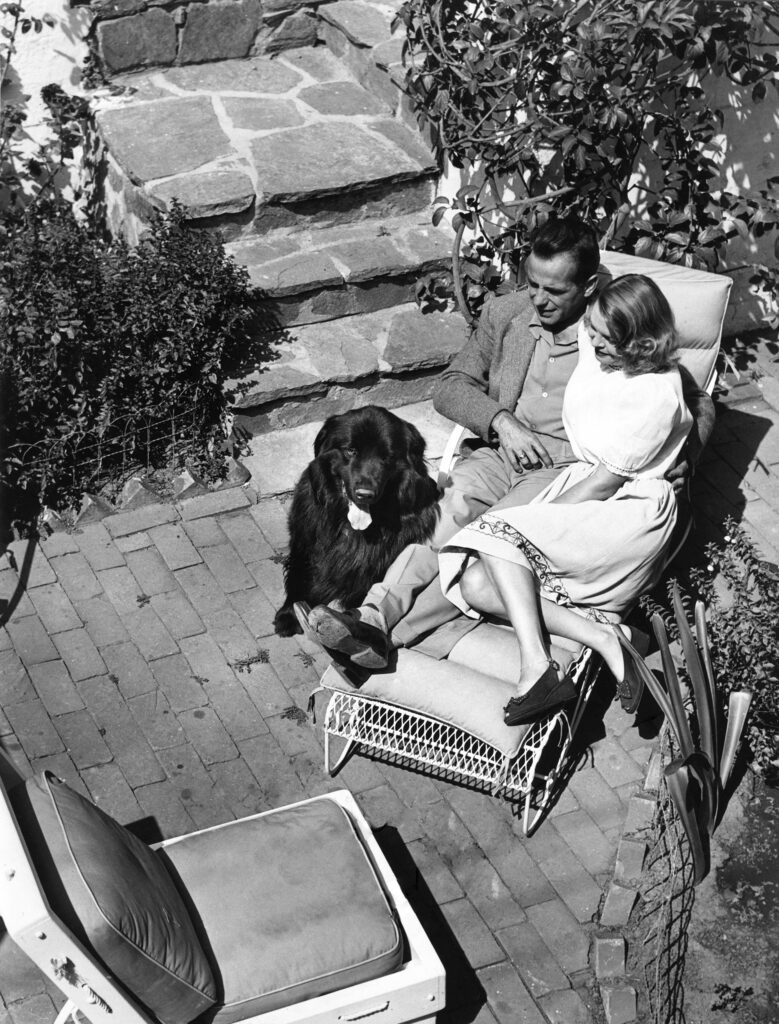
Throughout his life, Bogart was drawn to successful women. However, he often faced disappointment when they were unable to commit fully or put him first. This pattern repeated until he met his third wife, Mayo Methot. Mayo was the moll to his gangster. They met while playing B-movie characters in films, with Mayo getting less and less work in Hollywood as she was deemed over the hill at 33. As their marriage progressed, Bogart’s career soared while hers fizzled out.
Their relationship was fraught with complexity, marked by passion, deep-seated resentment, and episodes of mutual violence. This tumultuous dynamic and the intense emotions it engendered appeared to fuel the nuanced performances in some of Bogart’s most iconic roles, such as Rick in Casablanca. The relationship reached a breaking point, and as it disintegrated, Lauren Bacall made her entrance from New York. In Bacall, Bogart seemingly found his equal. She sought a paternal figure, while he yearned for genuine affection. By all accounts, their love was profound and consuming. Bogart’s private life was extraordinarily eventful, arguably more so than many of his cinematic characters.
V: What was the experience like of working with Bogart’s son Stephen, and encountering probably one of the best resources for a transparent view into Bogart’s life?
KF: It was a pleasure collaborating with Stephen. He and Leslie were generous with both their time and their recollections. Interviewing Stephen for the film was particularly valuable, as he offered intimate, first-hand insights.
V: Stephen, in this telling of your father’s life and career, in what ways do you think the documentary perfectly captured the essence of his character and the complexities surrounding the various relationships in life that were so formative for him?
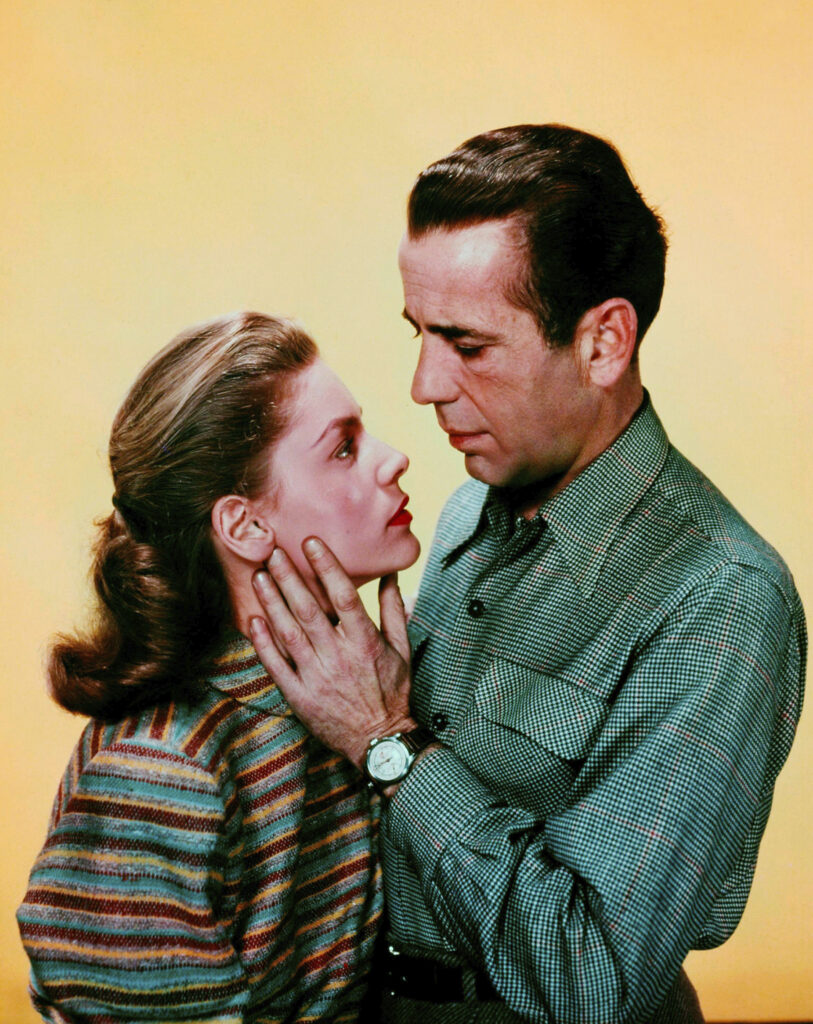
Stephen Humphrey Bogart: The main thing I took from the end product is how different it is…it’s not a fawning, cookie cutter documentary ….its a real story about a real person who was so much more than his public persona and the story is told in such a unique way I think fans and other viewers alike will find it very interesting and entertaining.
V: Were there any details about your father and his character that you wanted emphasized in the documentary?
SHB: Well, the basic Bogart story has been told, so I wanted us to go in a different direction and not focus on his movies….find out more about who he was from birth and what was the genesis of who he was to become and how that shaped the choices he made as a person and an actor shaped him into the icon he continues to be today…..i think we did that.
V: Throughout the process of unearthing rare and archival memories from your father’s life, were there any moments that surprised you or that you’ve never heard of/seen before that helped you understand more about your father?
SHB: First, as you may know I wrote a best selling memoir in 1995 called, “Bogart, In Search Of My Father”, so I did my research and there were no surprises to me, but there will be a lot of interesting information his fans don’t know about him. This of course looks at his movie arc, but it’s also for people who don’t just want the same old, same old.. That’s been done.
V: How were you feeling when the moments between your father and mother were brought up in the documentary? Were you ever a bit nervous about the telling of their storied relationship or do you feel like the film has captured their connection well enough?
SHB: I’ve lived the story of Bogie and Bacall for 75 years so any nerves about telling this story are long gone, but That said, I wanted to make sure the end product cast them both in a fuller light and told the whole story on AND off the movie set, I’m very pleased to say it did that
V: What was it like getting to know your father outside of the role of being a father (or even an actor)? Did you find yourself relating to him on a deeper level?
SHB: It was important for me to get across not WHAT (actor, father, etc) he was, but WHO he was as a man and do it in a different, interesting way. I think we’ve done that and I think viewers will agree.
This story appears in the pages of V150: now available for purchase!
Discover More





